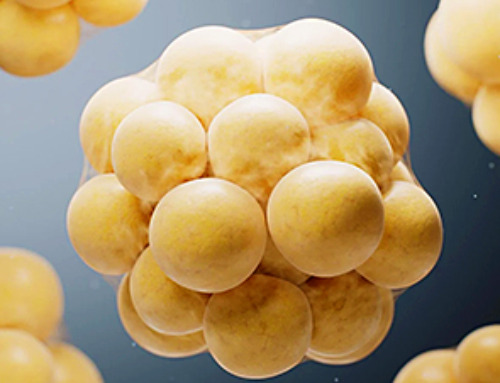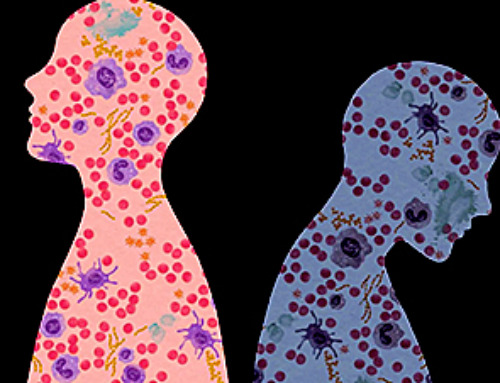DNA may be the stuff of life, but if it isn’t repaired in our bodies on a regular basis, it can lead to diseases that can cause some pretty unpleasant types of death. DNA damage has been linked to the formation of cancer, Alzheimer’s disease, COPD and many other serious and often life-threatening conditions. It has also been implicated in our natural aging process. Now researchers may have found a key to why DNA is repaired in certain cells but not in others: a set of proteins called the DREAM complex. The findings may have implications for warding off cancer and extending life, although more research is needed.
However, in the case of germ cells, which are egg and sperm precursor cells, DNA damage is normally much less than what is seen in adult cells. The thinking is that because germ cells are responsible for transmitting genetic material from parents to children, evolution has seen to it that damage to the DNA in these critical information carriers is kept to a minimum.
In an effort to find out why this difference between germ cells and mature body cells exists, a research team at the University of Cologne found out that the more developed cells have a group of proteins in them called the DREAM complex (dimerization partner [DP], retinoblastoma [RB]-like, E2F and MuvB), while germ cells do not.
The study confirmed the theory, and the scientists found that the presence of the DREAM complex did, in fact, limit how many DNA repair mechanisms existed in the nematode cells. “The complex attaches to the DNA’s construction plans containing instructions for the repair mechanisms,” says a summary of the research. “This prevents them from being produced in large quantities.”
Preserving vision
In an additional phase of the study, the team saw success in mice that were genetically predisposed to premature aging. By inhibiting the DREAM complex, the researchers were able to reverse natural damage to DNA in the animals’ retinas, which in turn preserved their vision.
The team says more research will be needed, but add that the discovery of how the DREAM complex keeps cells from repairing their DNA could open the door to slowing down the ravages of aging and fighting off a range of diseases – including radiation damage from space travel.
“Our findings for the first time allow us to improve DNA repair in body cells and to target the causes of aging and cancer development,” said Prof. Björn Schumacher, Director of the Institute for Genome Stability in Aging and Disease at the University of Cologne’s CECAD Cluster of Excellence in Aging Research.
News
This Simple Brain Exercise May Protect Against Dementia for 20 Years
A long-running study following thousands of older adults suggests that a relatively brief period of targeted brain training may have effects that last decades. Starting in the late 1990s, close to 3,000 older adults [...]
Scientists Crack a 50-Year Tissue Mystery With Major Cancer Implications
Researchers have resolved a 50-year-old scientific mystery by identifying the molecular mechanism that allows tissues to regenerate after severe damage. The discovery could help guide future treatments aimed at reducing the risk of cancer [...]
This New Blood Test Can Detect Cancer Before Tumors Appear
A new CRISPR-powered light sensor can detect the faintest whispers of cancer in a single drop of blood. Scientists have created an advanced light-based sensor capable of identifying extremely small amounts of cancer biomarkers [...]
Blindness Breakthrough? This Snail Regrows Eyes in 30 Days
A snail that regrows its eyes may hold the genetic clues to restoring human sight. Human eyes are intricate organs that cannot regrow once damaged. Surprisingly, they share key structural features with the eyes [...]
This Is Why the Same Virus Hits People So Differently
Scientists have mapped how genetics and life experiences leave lasting epigenetic marks on immune cells. The discovery helps explain why people respond so differently to the same infections and could lead to more personalized [...]
Rejuvenating neurons restores learning and memory in mice
EPFL scientists report that briefly switching on three “reprogramming” genes in a small set of memory-trace neurons restored memory in aged mice and in mouse models of Alzheimer’s disease to level of healthy young [...]
New book from Nanoappsmedical Inc. – Global Health Care Equivalency
A new book by Frank Boehm, NanoappsMedical Inc. Founder. This groundbreaking volume explores the vision of a Global Health Care Equivalency (GHCE) system powered by artificial intelligence and quantum computing technologies, operating on secure [...]
New Molecule Blocks Deadliest Brain Cancer at Its Genetic Root
Researchers have identified a molecule that disrupts a critical gene in glioblastoma. Scientists at the UVA Comprehensive Cancer Center say they have found a small molecule that can shut down a gene tied to glioblastoma, a [...]
Scientists Finally Solve a 30-Year-Old Cancer Mystery Hidden in Rye Pollen
Nearly 30 years after rye pollen molecules were shown to slow tumor growth in animals, scientists have finally determined their exact three-dimensional structures. Nearly 30 years ago, researchers noticed something surprising in rye pollen: [...]
NanoMedical Brain/Cloud Interface – Explorations and Implications. A new book from Frank Boehm
New book from Frank Boehm, NanoappsMedical Inc Founder: This book explores the future hypothetical possibility that the cerebral cortex of the human brain might be seamlessly, safely, and securely connected with the Cloud via [...]
How lipid nanoparticles carrying vaccines release their cargo
A study from FAU has shown that lipid nanoparticles restructure their membrane significantly after being absorbed into a cell and ending up in an acidic environment. Vaccines and other medicines are often packed in [...]
New book from NanoappsMedical Inc – Molecular Manufacturing: The Future of Nanomedicine
This book explores the revolutionary potential of atomically precise manufacturing technologies to transform global healthcare, as well as practically every other sector across society. This forward-thinking volume examines how envisaged Factory@Home systems might enable the cost-effective [...]
A Virus Designed in the Lab Could Help Defeat Antibiotic Resistance
Scientists can now design bacteria-killing viruses from DNA, opening a faster path to fighting superbugs. Bacteriophages have been used as treatments for bacterial infections for more than a century. Interest in these viruses is rising [...]
Sleep Deprivation Triggers a Strange Brain Cleanup
When you don’t sleep enough, your brain may clean itself at the exact moment you need it to think. Most people recognize the sensation. After a night of inadequate sleep, staying focused becomes harder [...]
Lab-grown corticospinal neurons offer new models for ALS and spinal injuries
Researchers have developed a way to grow a highly specialized subset of brain nerve cells that are involved in motor neuron disease and damaged in spinal injuries. Their study, published today in eLife as the final [...]
Urgent warning over deadly ‘brain swelling’ virus amid fears it could spread globally
Airports across Asia have been put on high alert after India confirmed two cases of the deadly Nipah virus in the state of West Bengal over the past month. Thailand, Nepal and Vietnam are among the [...]





















